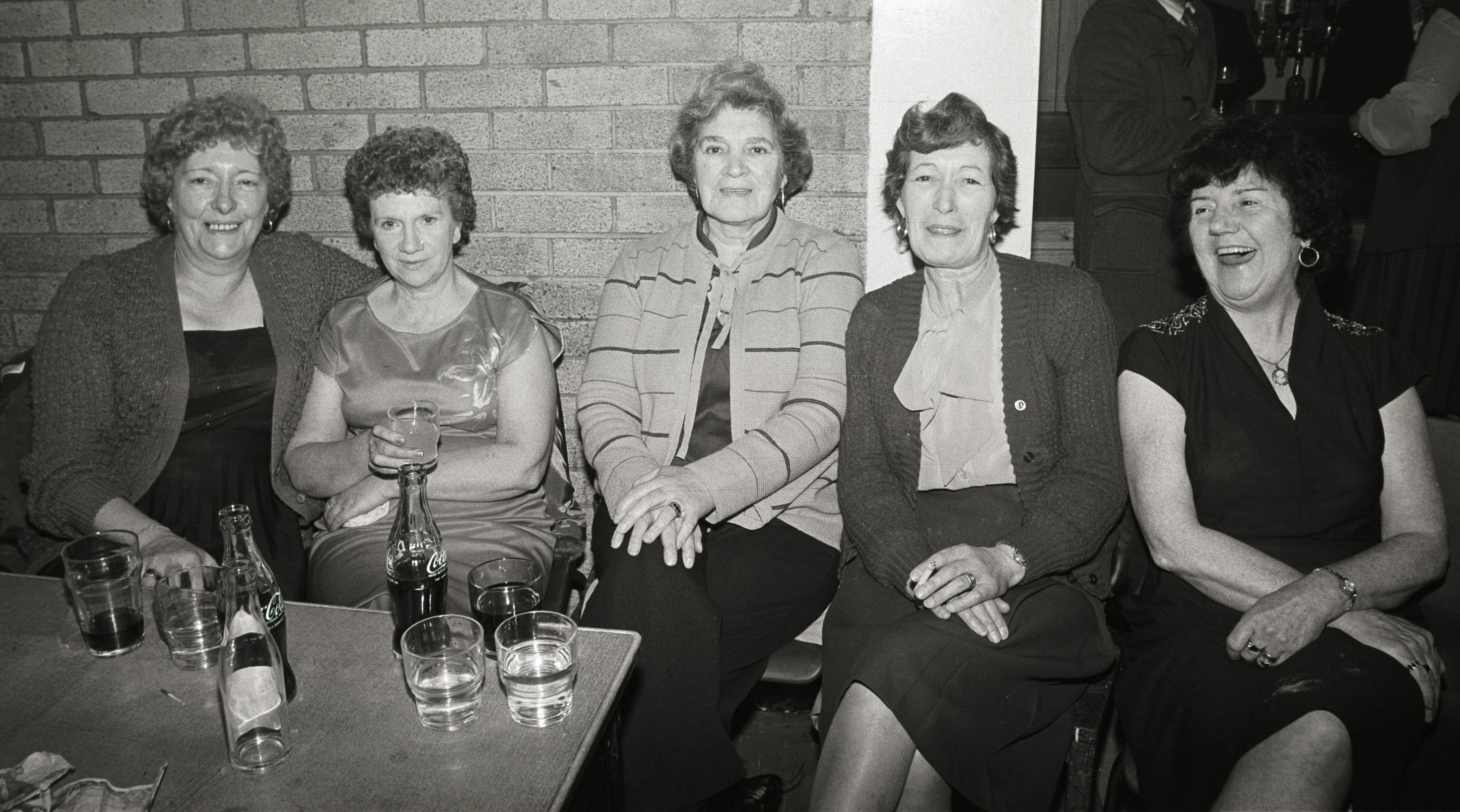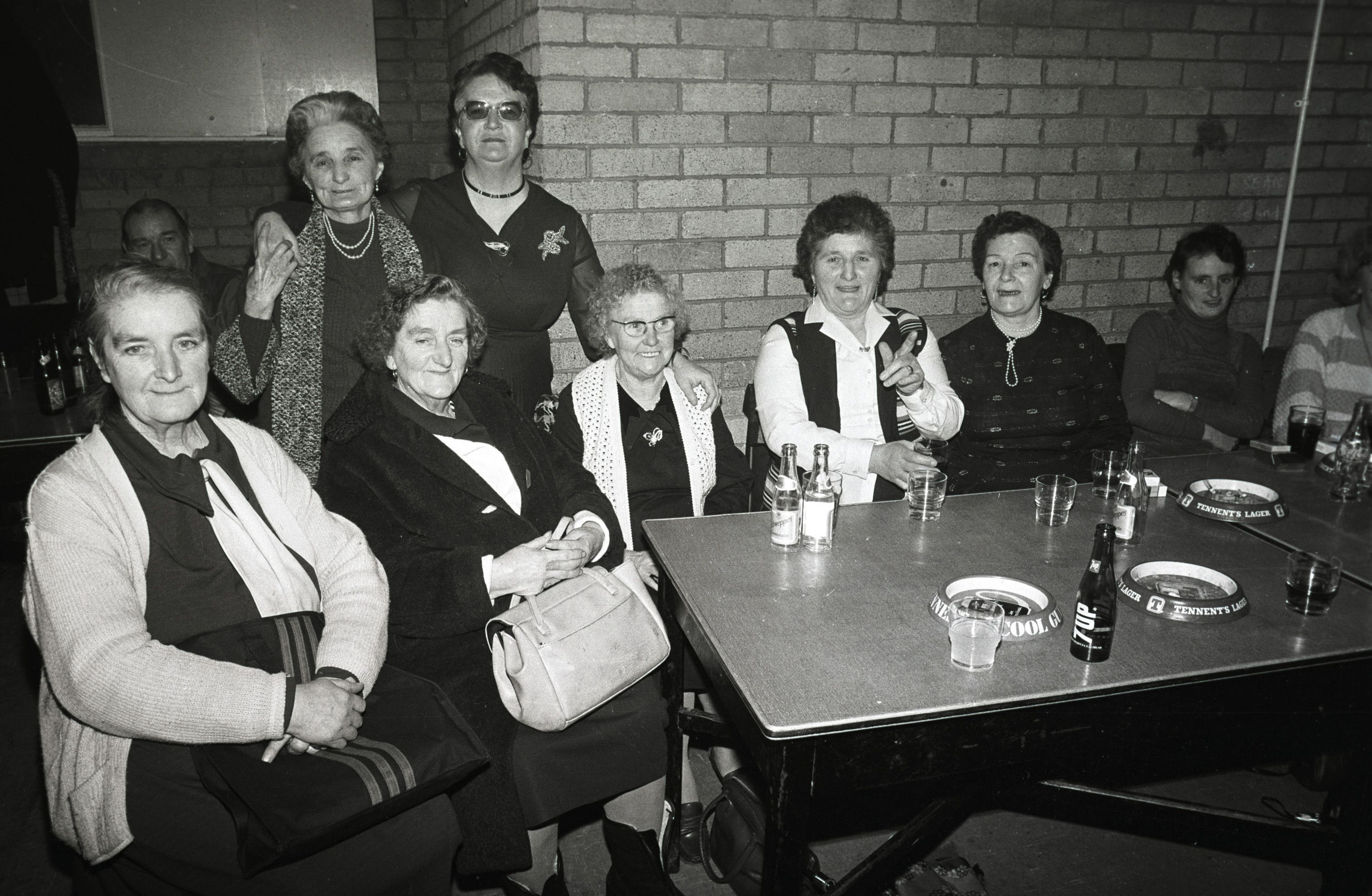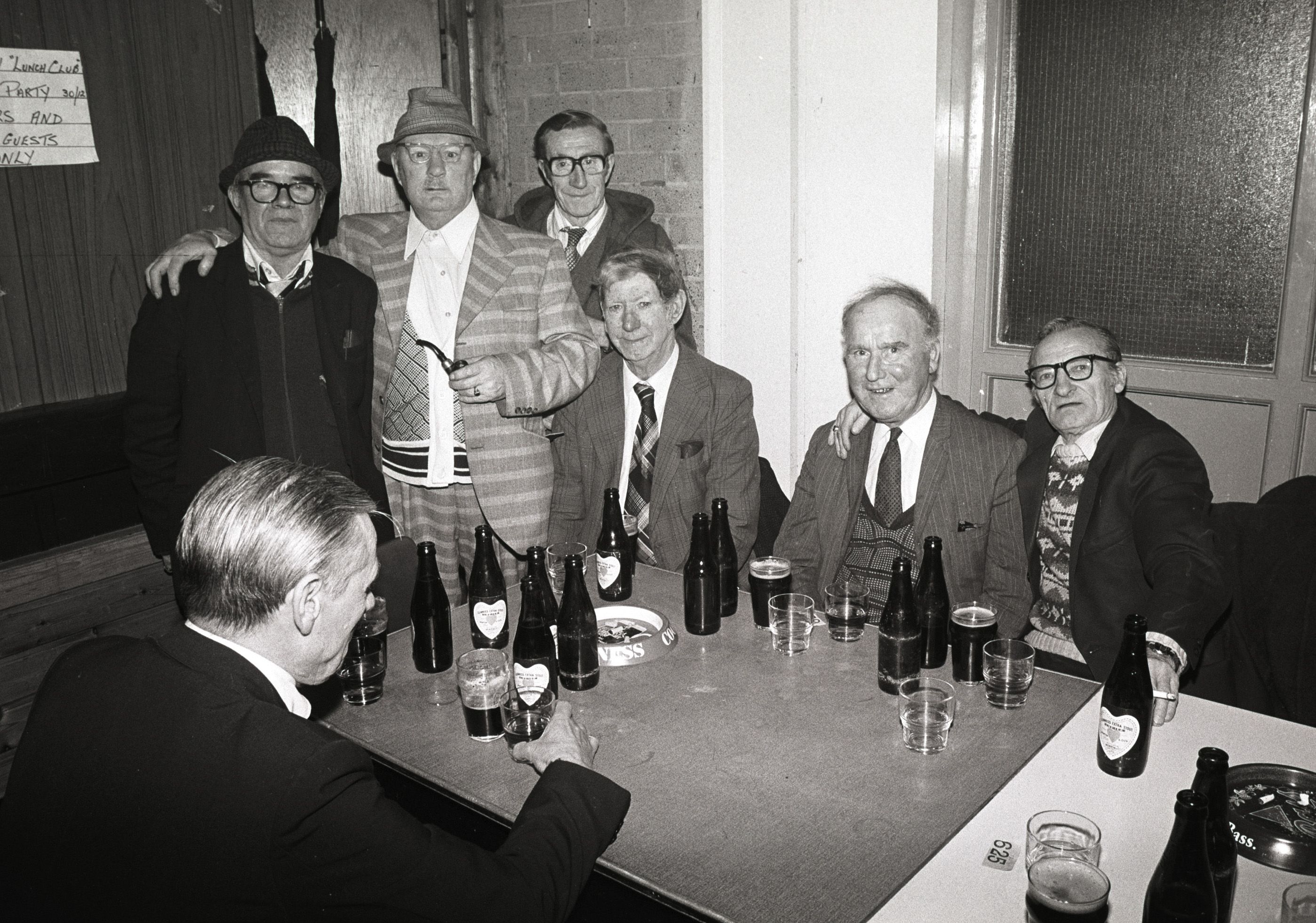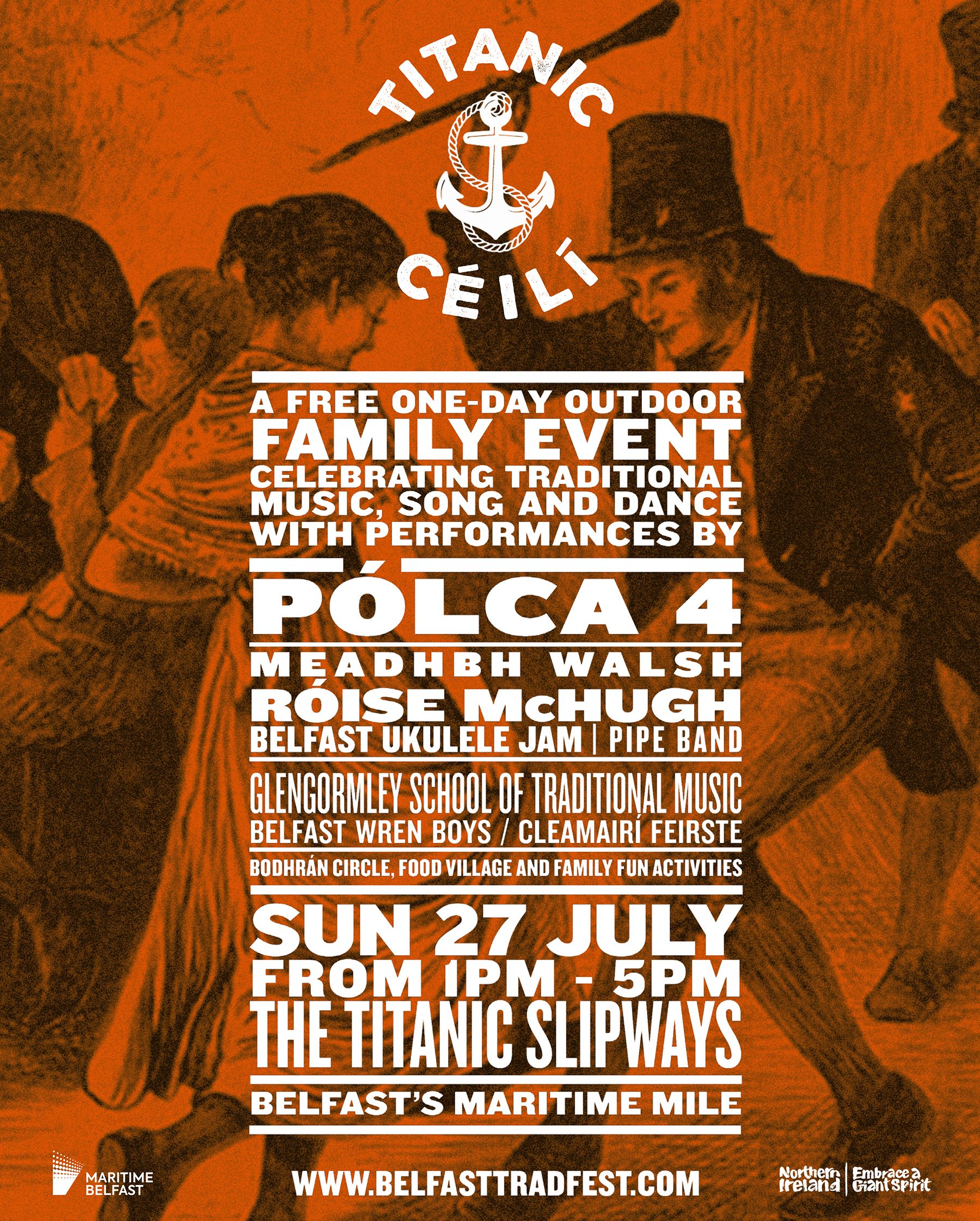We look at the stories that were making the headlines this week in the Andersonstown News in 1982
Andersonstown footballer Liam Burns (18) was set to join Cardiff City FC in January 1982
Punters have their say on price rise and taxi routes
ONE of our roving reporters braved the carbon monoxide last week to ask the great taxi-using public in Castle Street just what they thought of the black taxi service. Here is his report.
Andersonstown taxi-users were the most enthusiastic about the service giving the green light to the “fairly reasonable” price rise. The taxis, one woman said, are “100 per cent better than the buses.”
Another, who denied being a taxi-man's wife, praised the drivers as “very hard-working men”.
Those travelling Glen Road, however, are not content with their lot.
One housewife from Glencolin was resigned to the price rise (“like everything else you have to pay for it)” but neither she nor two other women from Gransha and Coolnasilla, who had been waiting from ten to 20 minutes for a taxi, had a good word for the FTA.
“The Glen Road service,” said one, “is ridiculous! Is there something wrong with Glen Road people?”
The women claim that queues for the Glen Road are shorter than others, not because there isn't a demand, but because the drivers don't pick up the passengers in Castle Street.
While they had been waiting, over a dozen taxis had gone up to the Andersonstown and Whiterock queues, avoiding them.
Eventually, however, driver 178 came to their rescue. On to the Whiterock queue where things couldn't be better. The price rise was 'alright' and anyway it was still cheaper than the buses, said one person.
But, lurking in the Whiterock queue I discover a woman who lives on the Glen Road. She didn't see any sense in waiting in the Glen Road queue but preferred to travel to Turf Lodge and walk down home. She agreed that if all the Glen Road taxi-users joined the Glen Road queue the drivers might pick them up from it more often, but she wasn't going to push the point just then because “you'd be standing here till tomorrow waiting for a Glen Road taxi!”
All is not well at Twinbrook either.
It costs 35p to travel from Castle Street to Twinbrook, but passengers claimed that the service from the city centre, especially on Saturday, is inadequate.
The main complaint seems to be with the service out of Twinbrook where “it is hard to get a taxi to pick you up.”
A schoolgirl wasn't so temperate in her criticism. The service, she said, was 'bad,' on a Saturday it was terrible, and, really getting the boot in, “it isn't any better than the buses.”
NEXT WEEK: The Empire Strikes Back! The FTA reply to complaints made by the public.
Bernie Farrell, Mary Coogan, Kitty Harbinson and Mary Donnelly at Ballymurphy Lunch Club, Whiterock Road
Editorial: 40% youth on dole
WE make no apologies this week for returning to the subject of youth unemployment, which is at present running at more than 40 per cent in some of the Catholic areas of Belfast.
The problem has now reached crisis proportions and necessitates crisis methods to solve it. Unemployment in any society is a crime, but youth unemployment must surely be the greatest crime of all, when a whole generation of young people could be incapacitated for life because of the lack of opportunity to develop skills, experience and confidence through gainful employment. In our view, employment is absolutely necessary for young people to develop into balanced human beings, and if deprived of the opportunity for too long, could quite well mark them for life.
This is especially true of the less academic section of our young people who would ordinarily leave school and go into some form of employment, whether it be skilled, unskilled, white collar or manual. We must admit that our education system has failed this section of young people and seems completely incapable of attending to their needs. Employment after school for these young people is not so much an exercise in further education, but rather a second opportunity to be educated at all. Our education system deprived them firstly of an opportunity to be educated, and society in general is depriving them of their second chance at education.
So what hope is there for such young people in a community? We believe that those who control our schools are morally bound to place more emphasis on the welfare of this group even if it means depriving the more academically endowed of some resources. As well as this, the schools themselves cannot deny a responsibility to these young people for their future employment. A restructuring of school curriculum is needed, as well as a new emphasis and perspective of what education means to the non-academic. In other words, the school authorities will have to climb down off their academic Ivory Towers and place less emphasis on the P's and Q's and more on the Picks and Shovels.
To say that employment is the job of the government is futile in our situation, because if they would not provide it in times gone by when the economic situation was somewhat better, what hope is there now when they have the excuse of a world recession.
At the moment much is being made of the control of the Catholic schools. What about taking it a step further and taking control of our own employment. Are the controversial training colleges, either state or voluntary, doing anything about this important side of the education process? If not it is about time that we insisted that they do.
Mary Sheppard, Mary Hannon, Teresa Slavin, Mary Murphy, Kay Delaney, Sally Owens and Lily Reid at Ballymurphy Lunch Club
Silence broken
AS lan Paisley and company tour the U.S.A. and Canada spreading their very own version of events in Ireland, Silent Too Long, the organisation of relatives of the 600 plus innocent victims of loyalist and ‘security forces’ violence issue their first booklet at a press conference this Sunday, at 2.00 p.m. in the Felons' Club, New Lodge Road.
Full support for the Silent Too Long organisation has been pledged by the Irish Independence Party. A statement issued by the chairman of the Derry Executive, Mr Jim Crossan, said that there had been a great need for this independent based organisation which had been set up to represent the relatives of those innocent people who had been killed by the British Army, RUC, UDR and various Loyalist paramilitaries.
“The impression frequently given by British and Unionist politicians, and indeed by some sections of the media, is that the violence in the North has been coming from one side only. This has given rise to intense frustration and justifiable anger among the families of Catholics who have met with violent deaths.
"For our part we add our support to the group's request for a meeting with the Secretary of State, Mr Prior. If Mr Prior was prepared to meet the Widow's Mite organisation then he should find nothing objectionable in a meeting with Silent Too Long.
Finally, we urge all people to assist the new group in whatever way they can to help them tell their story which has been sadly left untold and neglected for far too long.
The 50-page publication documents some of the sectarian murders of Catholics since 1966.
"There is only about one-sixth of the total in this, our first publication," said Mr Eddie McWilliams, one of the group whose son was a victim of British loyalism. "We're still compiling dossiers on all the victims and booklets will be published at regular intervals until all the facts are documented."
The booklet makes horrific reading, covering as it does some of the most brutal murders ever committed in Ireland and including the Malvern Street murder of 1966, carried out by the U.V.F., the murder of nine-year-old Patrick Rooney by the R.U.C. in 1969, and some of the murders by the Loyalist Shankill Butchers.
The booklet will be on sale this weekend, and copies are being sent all over the world including the U.S.A. and Canada. Press people, senior clergy including Cardinal Ó Fiaich and Bishop Philbin have been invited to the Sunday meeting, and an invitation is also being extended to political, community and social groups.
Organising committee of Ballymurphy Lunch Club, Whiterock Road








